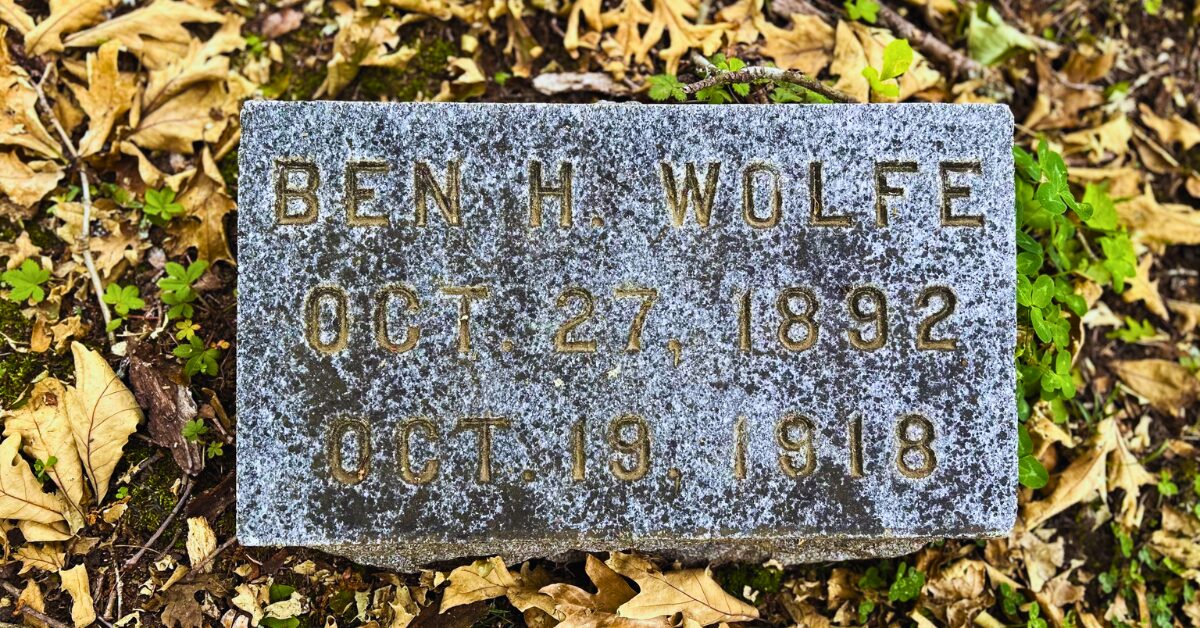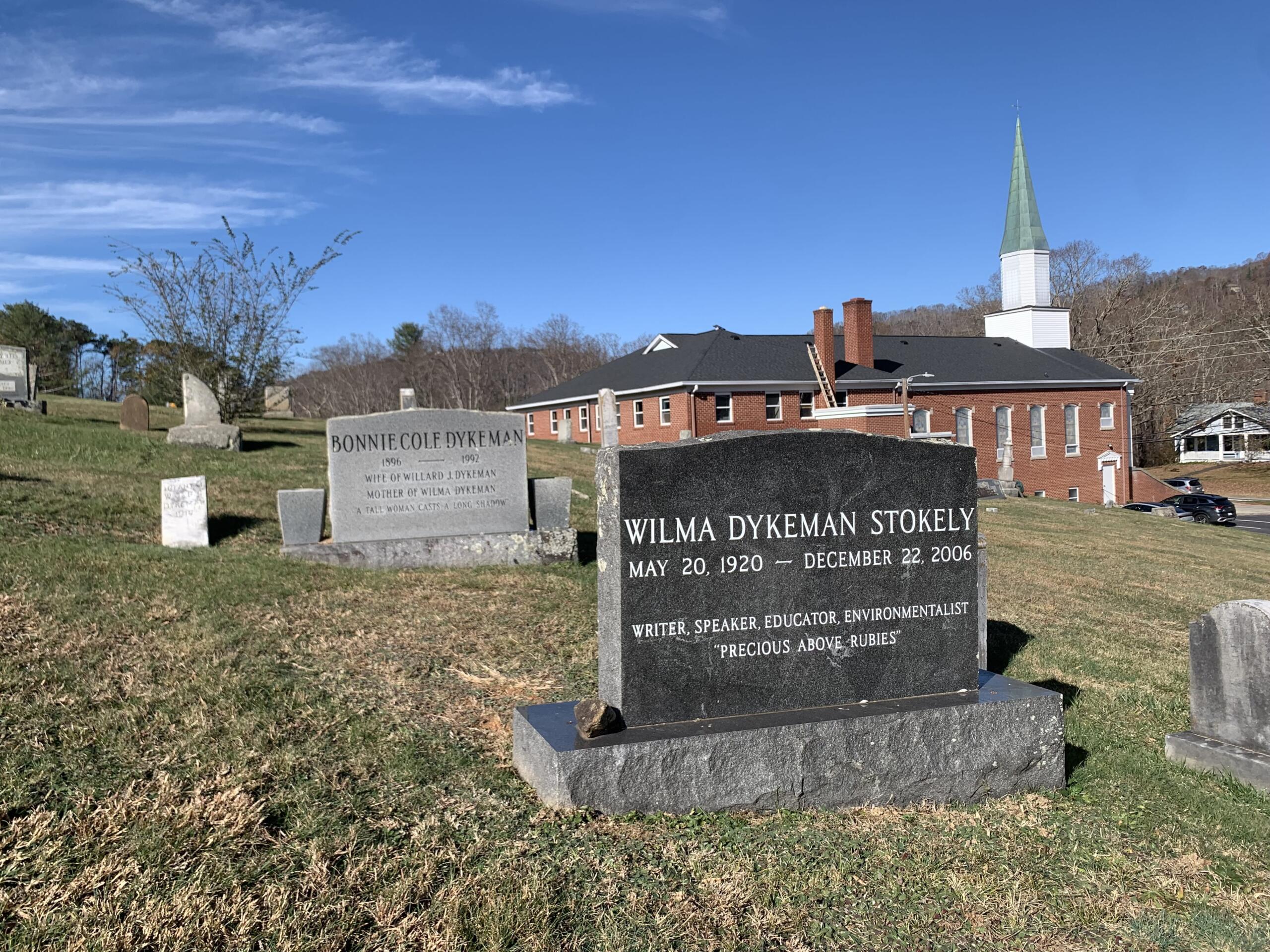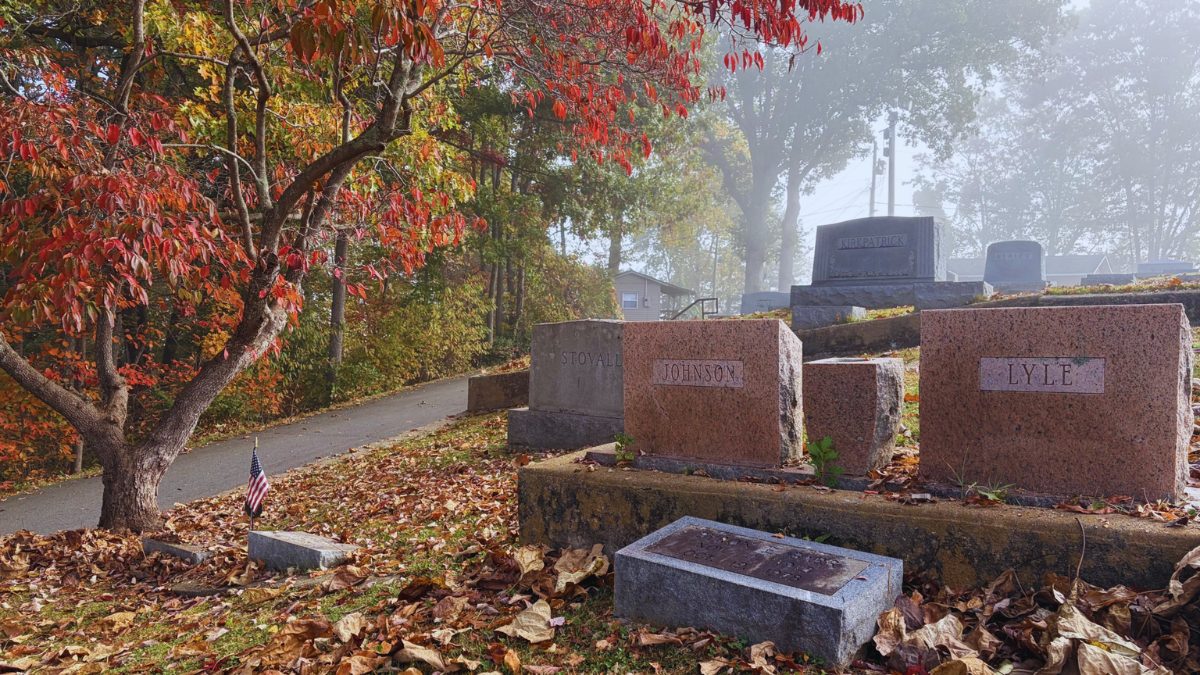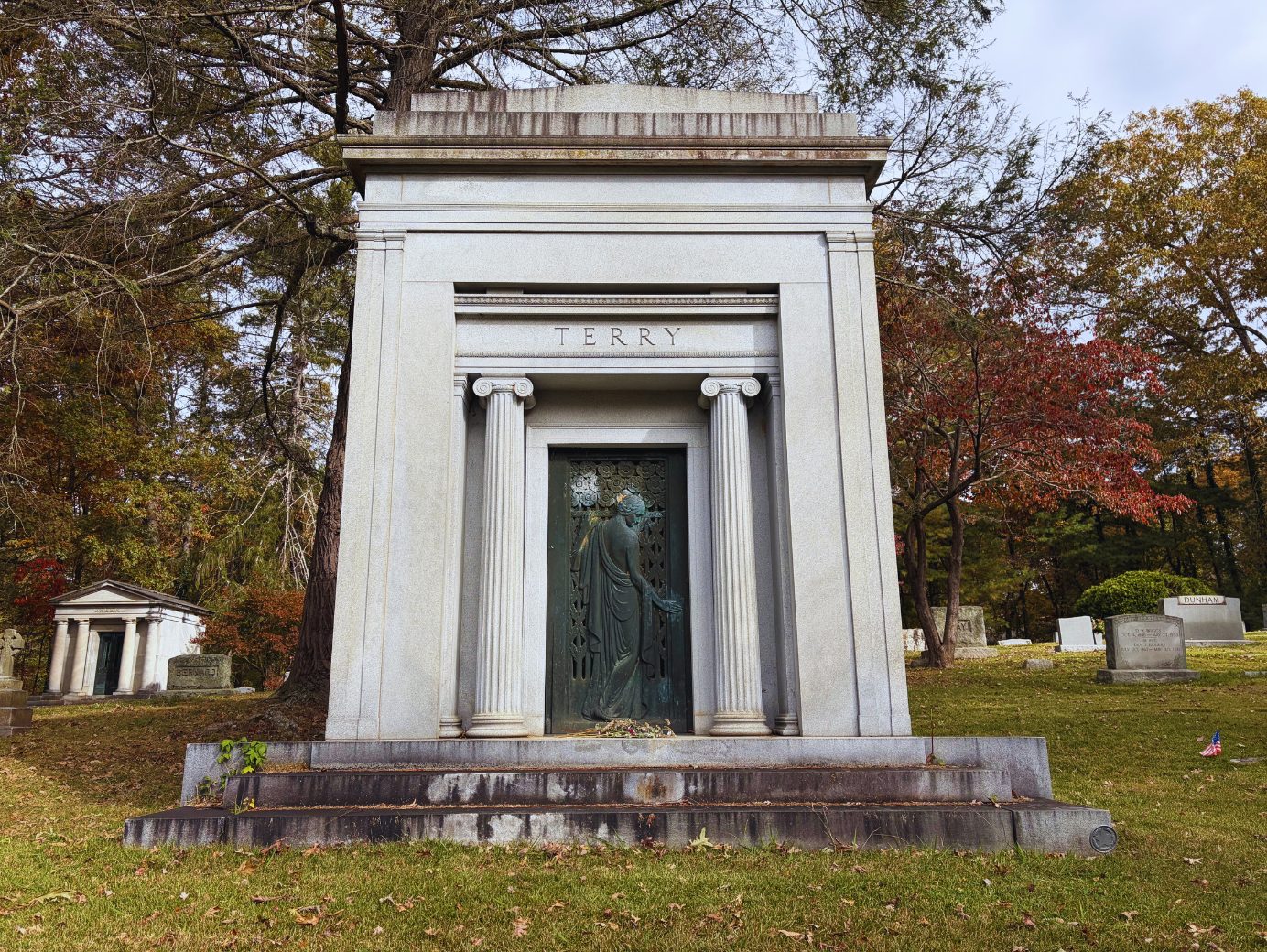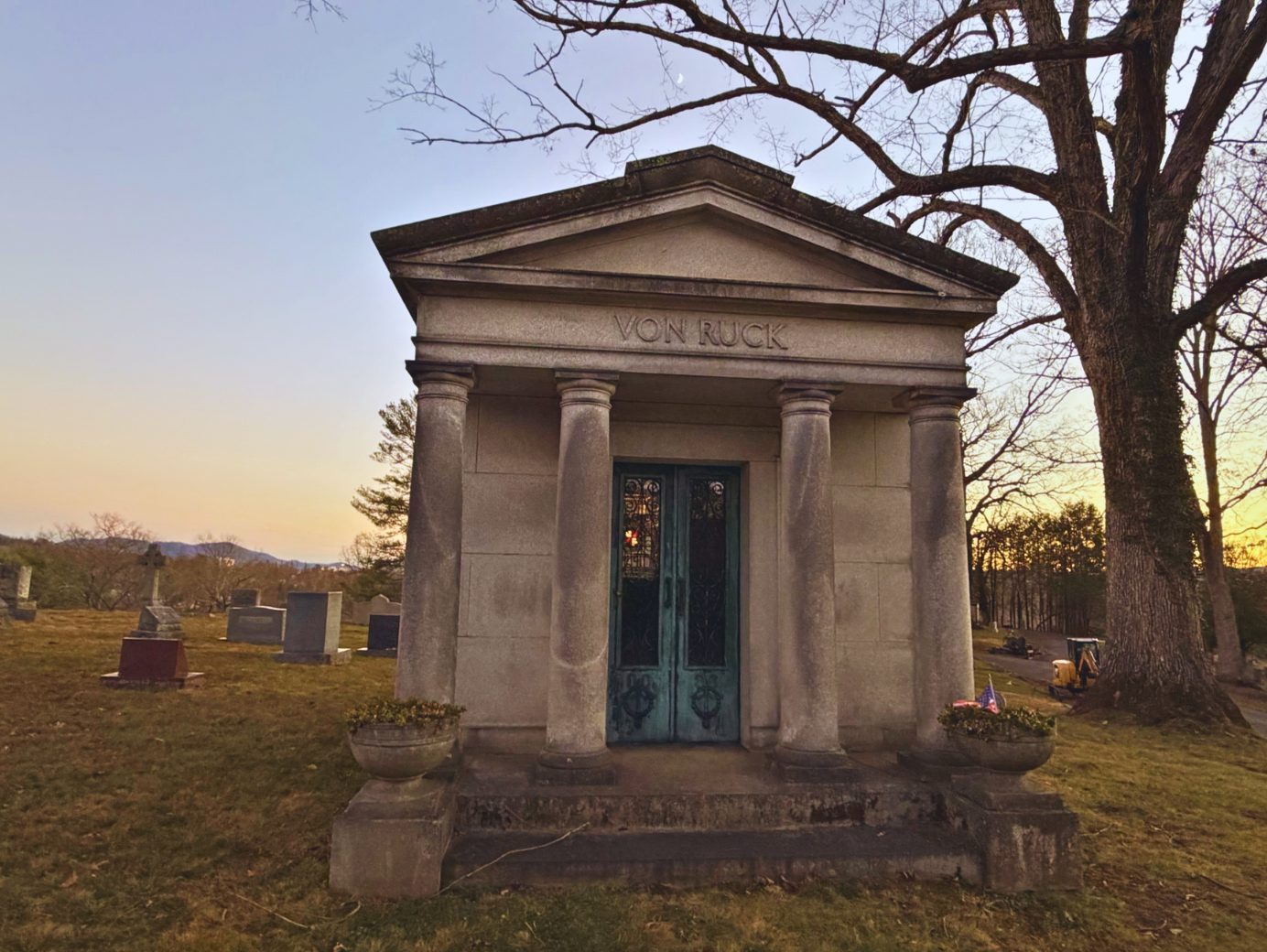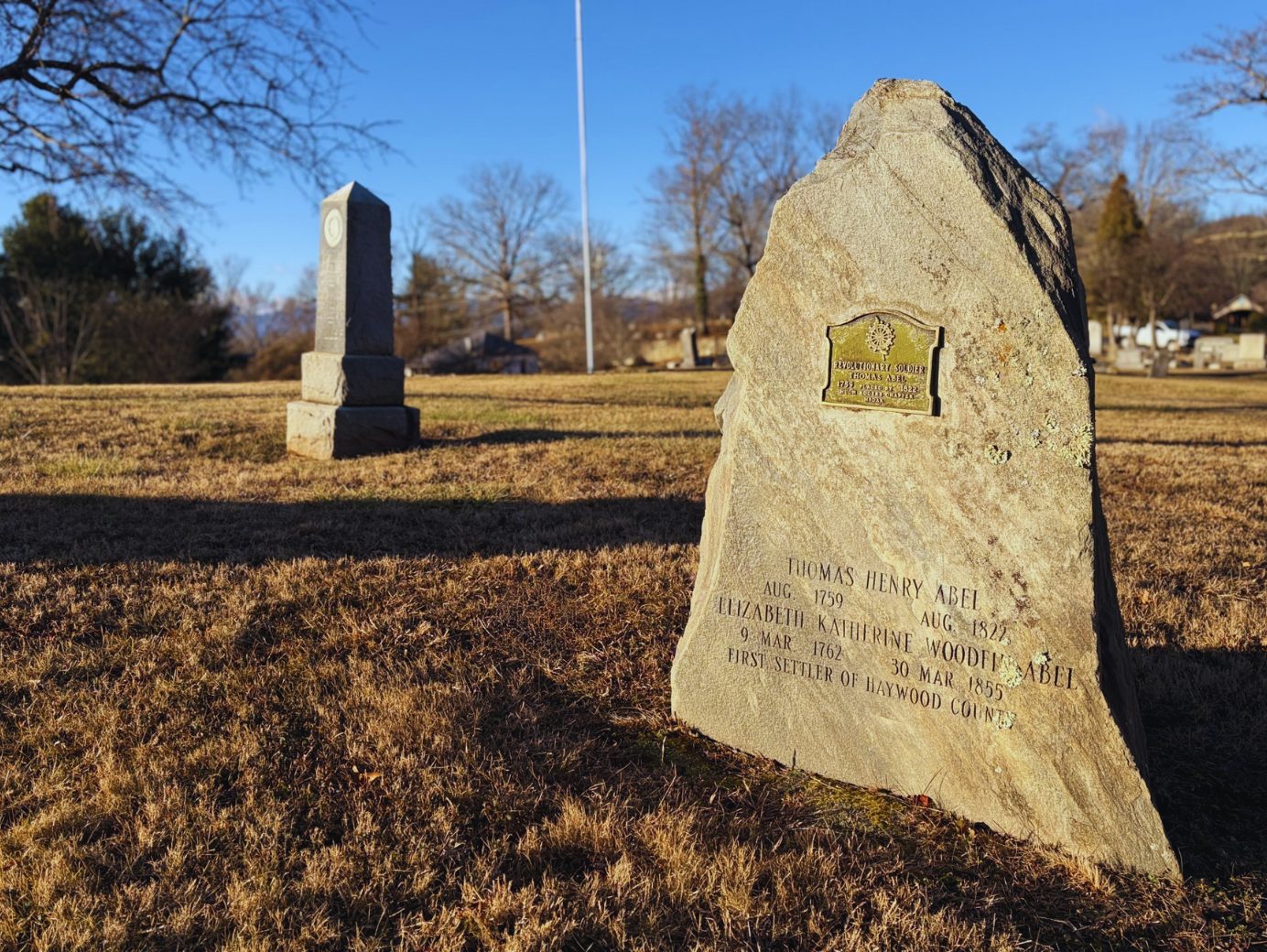Editor’s Note: Western North Carolina is rich with untold stories—many resting quietly in local cemeteries. In this Tombstone Tales series, we explore the lives of people from our region’s past whose legacies, whether widely known or nearly forgotten, helped shape the place we call home.
ASHEVILLE, N.C. — A small granite marker in Riverside Cemetery bears the name Ben H. Wolfe. The inscription is simple, offering only his birth and death dates, October 27, 1892, to October 19, 1918, but the story behind the name runs deep through Asheville’s history and American literature.
Ben Wolfe was the third of eight children born to William and Julia Wolfe. His younger brother, Thomas, would later immortalize the family’s boardinghouse on North Market Street and its people in Look Homeward, Angel. Long before the world knew Thomas’s name, Ben was the dependable son, the one who worked hard to help his mother run the Old Kentucky Home, the sprawling Victorian boardinghouse that welcomed travelers to Asheville.
Family accounts describe Ben as kind, steady, and well-liked. He worked for the Asheville Citizen newspaper and was known for his humor and patience. The Wolfe household was noisy and crowded, with boarders coming and going, Julia collecting rent, and Thomas, the youngest, dreaming of a world beyond the Blue Ridge Mountains. Ben provided a sense of calm in the chaos.
Years later, Thomas would write of his brother with deep affection, saying, “Ben was the best of us – steady, kind, patient. I loved him better than anyone in the world.”
In 1918, the influenza epidemic swept through Asheville. The Old Kentucky Home, full of guests and family members living in close quarters, could not escape the spread of illness. Ben fell sick in October, and his condition worsened quickly. He was moved to an upstairs bedroom of the boardinghouse, where Julia and the family cared for him as best they could.
Ben died there just eight days before his twenty-sixth birthday. His death devastated the Wolfe family. The laughter and conversation that once filled the house gave way to silence and grief. For Thomas, who was seventeen at the time, the loss marked the end of his childhood and the beginning of a lifelong reckoning with mortality and memory.
Years later, Thomas returned to that upstairs room in his fiction. In Look Homeward, Angel, he transformed Ben into Ben Gant, whose death scene remains one of the most powerful passages in American literature. The chapter, often cited as autobiographical, captures not only the heartbreak of losing a brother but the way death changes how one sees home. Wolfe described the dying light in the room, the weight of stillness, and the sense that time itself had stopped.

Visitors who tour the Thomas Wolfe Memorial today often pause outside that same bedroom. The lace-curtained windows and the narrow wooden floorboards remain. The stillness of the space echoes the description in Wolfe’s book. Guides speak quietly of Ben’s final days, a moment that connects the house’s history with its enduring sense of presence.
Ben’s death led Julia Wolfe to purchase the family plot at Riverside Cemetery, where she buried her son and later joined him, along with her husband and Thomas.
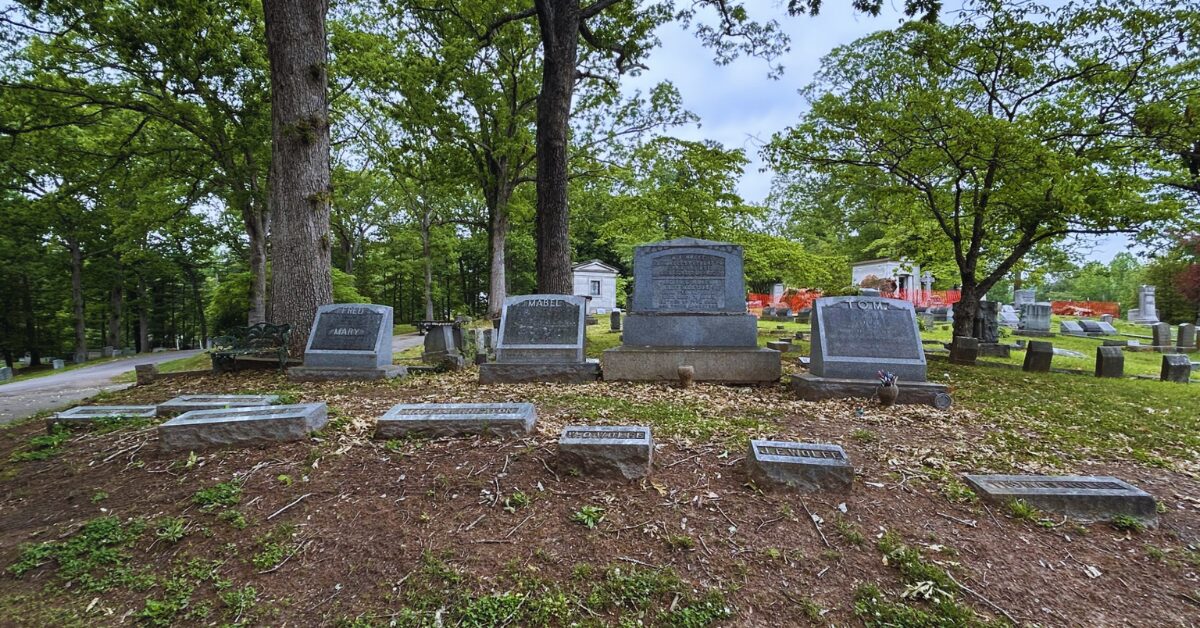
Standing at Ben Wolfe’s headstone, it is easy to see how a young man’s death could ripple through generations. His absence left a silence that shaped one of the nation’s great literary voices.
The house on Market Street is now a state historic site, preserved as the Thomas Wolfe Memorial, and the Riverside plot remains a place of quiet reflection. For those who visit both, the story of Ben Wolfe bridges life and legacy, the brother who stayed behind in memory, forever part of the home and the writer who could never let him go.

